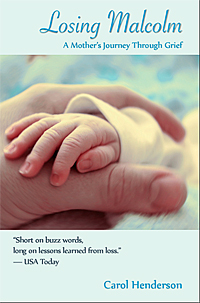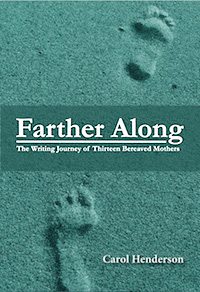The Big Talk
This was a conversation my sisters and I had dreaded for months, years. Finally it was going to happen. We were with my parents, at my sister’s house in Washington, DC, and we wouldn’t have another chance like this for months.
We needed to tell our father that it was time to stop driving.
Like so many older people, my parents pride themselves on their independence.
They’d driven all over Philadelphia—to the grocery store, to museums, to Quaker meeting. But we had been worrying about my father’s driving skills for years. Recently when he put his foot on the gas instead of the brake (luckily nothing disastrous happened), my sisters and I knew it was time for “the talk.”
For the most part, Mom and Dad are aging graciously. They gave up their house willingly and moved to a retirement community. They accept a helping arm when offered and don’t scare us with cavalier and unreasonable activities.
“We don’t want to be a burden,” they have always said. But giving up driving is a big deal–a real and symbolic loss. We had no idea how our dad, age 87, would react.
For far too many years and despite my husband’s and my pleading, my mother-in-law, Nancy, had insisted on driving herself from New York City to Chapel Hill. One time she arrived at our house frail and confused, the side of her car scraped and dented.
“What happened?” I asked.
“Oh, it was raining and I just got a little too close to a phone booth,” she said nonchalantly.
Later, telling my sister, I said, “At least she didn’t hit anybody.”
“Not that you know of!” my sister said.
We laughed at the time. But it wasn’t funny, really. Finally, Nancy’s license expired and she didn’t have the wherewithal to renew it. But she was angry and constantly asked for her car and her keys.
My daughter is researching a paper that makes the case for raising the driving age for teens. She’s studied the pre-frontal cortex of the brain—it’s the part that governs good judgment and decision-making, and in teenagers it’s not fully developed. In the elderly, it shrinks, causing, among other things, erratic driving. “Mom,” she concluded. “Old people should have to take a road test every year.”
Now, my sisters and I faced our dad in my sister’s living room. Our mother had vanished into the kitchen. She was willing to stop driving but didn’t want to hear this conversation.
“Dad, “ my oldest sister said, “There’s something we need to talk to you about. We feel you’ve got to stop driving. Now. For good.”
Before he could respond, we all chimed in: “Remember what happened to your friend, who accidentally gunned his car into a pedestrian?” “You’ll save money on gas and insurance.” And the clincher: “You told us to tell you when we thought the time had come. Remember?”
We weren’t sure if he remembered or if he had even meant it.
Dad looked at each of us, his three daughters, carefully. We couldn’t read his expression. Was he mad? About to cry? Shout?
“There are just two words I want to say to you,” he said.
I gulped. My father can be ornery. We all expected the worst.
“Thank you.”
My sisters and I were stunned.
“Thank you for caring enough to tell me,” he said. “I won’t drive again.”
And that was that. This was several months ago. Sure, my parents miss their freedom but now they ride the local bus and use the retirement community’s van service.
“If we can just get the maniacs around here to give up driving their motorized carts–” my mother complained when I visited them over Easter. “You risk your life walking these halls.”
“No kidding,” Dad added. “Their children need to have a talk with them.”

 I'm happy to be part of this collection of personal stories, a collaboration involving over 60 teachers of memoir from around the world. The book is published independently by the Birren Center for Autobiographical Writing, through which the authors are certified to teach.
I'm happy to be part of this collection of personal stories, a collaboration involving over 60 teachers of memoir from around the world. The book is published independently by the Birren Center for Autobiographical Writing, through which the authors are certified to teach.
 A unique and beautiful exploration of Helen Keller's abiding friendship with prominent journalist Ed Chamberlin–and much more about Keller's struggles, passions, and values. The author is Chamberiin's great-great-granddaughter.
A unique and beautiful exploration of Helen Keller's abiding friendship with prominent journalist Ed Chamberlin–and much more about Keller's struggles, passions, and values. The author is Chamberiin's great-great-granddaughter.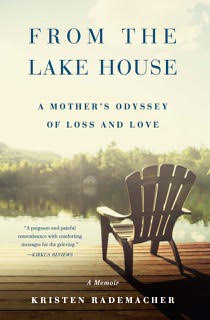 On August 8, 2020, in pandemic heat, I introduced Kristen Rademacher (via Zoom)at the launch party for From the Lake
House, A Mother’s Odyssey of Loss and Love, her wrenching memoir. Flyleaf Books, our hopping indie bookstore here in Chapel Hill, NC, hosted the event. A large crowd from across the country and around the world tuned in for the inspiring multi-media event.
On August 8, 2020, in pandemic heat, I introduced Kristen Rademacher (via Zoom)at the launch party for From the Lake
House, A Mother’s Odyssey of Loss and Love, her wrenching memoir. Flyleaf Books, our hopping indie bookstore here in Chapel Hill, NC, hosted the event. A large crowd from across the country and around the world tuned in for the inspiring multi-media event. This poignant memoir gives a boy's view of life in Nazi-held Prague and his escape to freedom in a challenging America.
This poignant memoir gives a boy's view of life in Nazi-held Prague and his escape to freedom in a challenging America.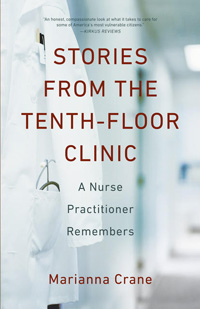 An award winning collection of powerful stories about serving the many needs of elderly and indigent patients, as one of America's first gerontological nurse practitioners.
An award winning collection of powerful stories about serving the many needs of elderly and indigent patients, as one of America's first gerontological nurse practitioners.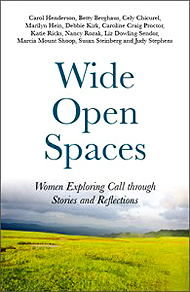 Essays by women ministers about their challenges and victories in answering the call to ministry.
Essays by women ministers about their challenges and victories in answering the call to ministry.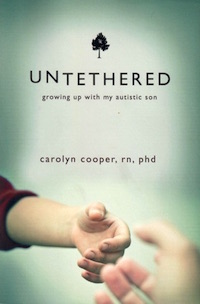 A mother's 40-year struggle to raise an autistic son – and to grow up herself.
A mother's 40-year struggle to raise an autistic son – and to grow up herself. This idyllic memoir recollects the sweet and simple summer pleasures of family life in mid-century Cape Cod.
This idyllic memoir recollects the sweet and simple summer pleasures of family life in mid-century Cape Cod. If you love your pets and make sacrifices for them, you will adore this lively book about a family's needy cats.
If you love your pets and make sacrifices for them, you will adore this lively book about a family's needy cats.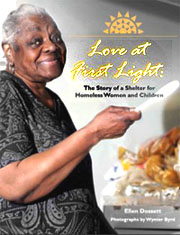 The history of a women's shelter in Birmingham, Alabama, as told through many voices.
The history of a women's shelter in Birmingham, Alabama, as told through many voices. William Buffett's short essays on nearly everything, arranged as an alphabet book.
William Buffett's short essays on nearly everything, arranged as an alphabet book. Essays about one man's dimensional life including some of his favorite recipes.
Essays about one man's dimensional life including some of his favorite recipes.